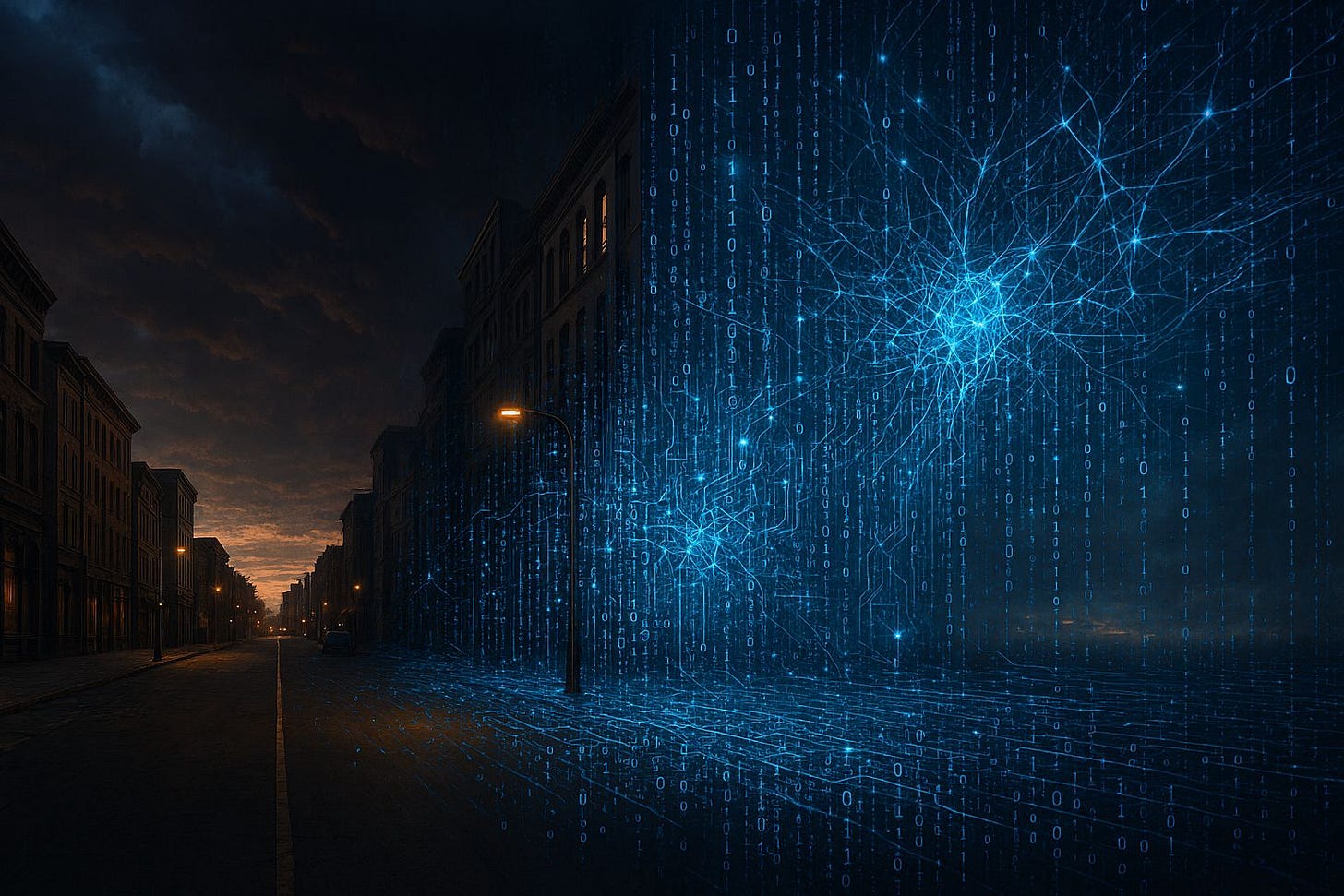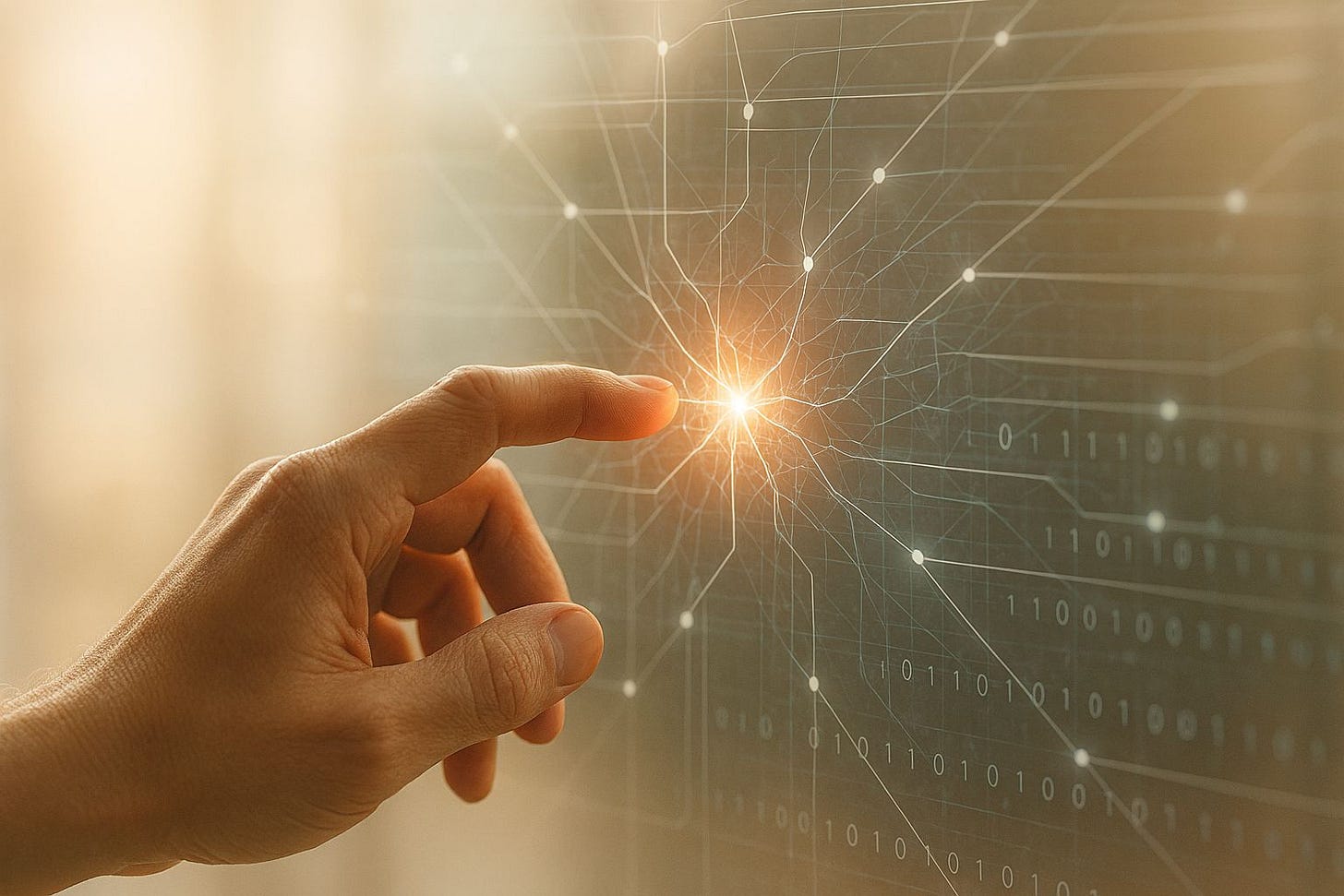The Unstoppable AI Revolution
Why AI and robots will change everything
In a seven-part series, I explore the profound impact of AI on our society, from technological revolution to ethical dilemmas. This is Part 1.
The calm before the storm
Right now, as you read this, birds are singing. Cars are driving by. Your phone buzzes with a notification. Life feels normal. But five years from now, you'll look back on this as an era that is gone forever. Not because of a war or a virus, but because of a silent, digital revolution that is currently—invisible to most—rewiring the very foundations of our civilization. There is no going back. This is what's coming.
The irrefutable evidence
This isn't science fiction. These are today's headlines:
AI as the new scientist: Google's DeepMind has AIs that discover new materials for batteries, condensing thousands of years of scientific progress into months. DeepMind's GNoME has already discovered 2.2 million new crystal structures—380,000 of which are stable and potentially revolutionary for battery and superconductor technology.
AI as the new artist: Models like Sora generate photorealistic videos from a simple text prompt. The film industry is watching its business model evaporate.
Robots as the new workforce: In Amazon's warehouses, hundreds of thousands of robots work 24/7. They don't get tired, they don't ask for a raise, and they don't go on strike.
AI as the new expert: Systems diagnose certain cancers better than teams of radiologists. They analyze complex legal documents in seconds—work that would take a lawyer weeks. AI systems like AlphaFold 3 are solving protein folding—a breakthrough scientists sought for decades.
The question is not if this will happen. The question is whether you see it happening now.
The power of exponential growth
The human mind thinks linearly. Technology grows exponentially. A pond that is completely covered by water lilies in 30 days is only half-covered on day 29. That final step is overwhelming, and only then does the scale of change become clear.
Our history is a series of these leaps, each one faster than the last:
Fire & Wheel: Took thousands of years to spread.
Steam Engine: Hundreds of years.
Electricity & Internet: Decades.
AI: Years. Months.
The changes in the next 10 years will be greater than those of the past 100 years. We are on day 29.
Consequences that matter
Work: Analyses by research firms like McKinsey show that a very significant portion (well over 90%) of a knowledge worker's tasks can potentially be automated, even with existing technology. Movies will be created entirely digitally from an AI-written script. Next, robots will appear as road pavers.
Health: Surgical robots operate with sub-millimeter precision. AI doctors analyze your full genome and medical history for a personalized diagnosis. Healthcare becomes preventive, personal, and extremely efficient.
Daily life: Your personal AI assistant handles your admin, schedule, travel, and communication. Autonomous cars become the norm until everything becomes public transport. Our complete infrastructure will change.
The sober conclusion
This is not a political debate. It is a technological fact. You can't argue with the tides. You can only prepare for them.
The only question left is not if this will happen, but whether our society is ready for it?
In the second article, I explore how AI evolves without human intervention.
Read it here: The Autonomous AI Evolution
Subscribe to my Substack so you don't miss any articles and get weekly updates delivered directly to your inbox.




